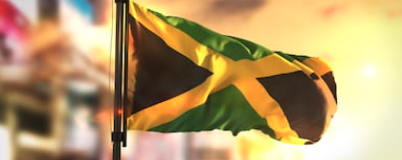
We all know of the sterling work of the organization Jamaicans for Justice but I read Chief Justice Sykes’ recent suggestion re the courts and our native tongue as a call for Jamaican for Justice. A long overdue call/suggestion in my view which is equally overdue re sermons!
In my young years (1968-1974) I worked in the Resident Magistrate’s Court in my hometown, Montego Bay and often felt pity for jurors who were forced to listen to make sense of the fancy English of trained lawyers, at times speaking ‘legalese’. Sometimes the evidence of a witness turned on an expression in our native tongue which if misunderstood, jeopardized the value of that piece of evidence.
As Prof. Carolyn Cooper and others have been saying, Jamaica is in fact a bilingual country and I would add that our native tongue, Jamaican, has several dialects or at least expressions that are peculiar to certain sections of our country. Miss that reality and misunderstanding could/will result.
One trite illustration, perhaps. In a sermon in Kingston, some years ago, I happened to mention a fruit ‘Coco plum’ and stopped myself and asked the congregation to raise hands if they knew that Jamaican fruit. Only about 4 hands went up then I asked them where they grew up or lived for awhile. All were from Montego Bay or related to a Montegonian.
Coco plum is what we, in that part of our country, call Otaheite apple!
In my first pastorate in the Porus circuit of Baptist churches in Manchester (1983-1986) I was delivering my first sermon in the Zion Hill church, a farming community.
I was trying to explain the puzzling English language expression in Galatians 1:6-7 which reads in part in the King James Version: “…another gospel which is not another…”I said: “Brethren, Paul here is expressing surprise that the Galatians had turned away from the gospel he had preached to them and turned to a gospel which is not identical to his gospel nor even similar to his gospel. He is playing on two different Greek words for another, the word for another in v.6 is different from the word for another in v. 7. This is the difference between identity and similarity.”
The deafening silence and puzzled look on faces told me I had failed to communicate because I was unfamiliar with how they think and speak. I might have dropped off a truck or visiting from another planet for all they knew.
The Spirit said to me (don’t ask me how) “wheel ‘n come again Chissy”. That week in pastoral visitation in the area one of our deacons told me about the varieties of Red peas (Kidney beans) grown in the area. In addition to the bright red standard variety there is a lighter red one with white streaks called ‘Ms. Kelly red peas’.
I pulled on that and said in Jamaican (pardon the spelling). “Breddrin, mek mi seh dat wan nex way. Paul seh, mi shock seh oonu tun weh fram de regular red peas gospel mi preach to oonu an wah oonu tun to a nat even miss Kelly gospel but a Jankro bead.”
Puppa Jeezas, choch blaze up wid amen. I was now speaking in their native tongue which needed no translation/interpretation.
Might I suggest—albeit on the flimsy basis of the C+ grade I got in my last foray in Psychology—that most Jamaicans however educated, instinctively think (when not consciously profiling) and certainly dream (subconsciously) in Jamaican, not standard English!
An Easter aside. On the cross, Jesus’ cry of dereliction “My God, my God…”, was in his native tongue, Aramaic (sister language to Hebrew). In extreme pain or pleasure we never cry out in a learned/acquired language but in our native tongue! Pastors, the sound of our Lord’s cry is Elee, Elee, lama sabakthanee [the a vowels are all short].
Since my Zion Hill saga I almost always preach in a mix of English and Jamaican even abroad. I recall doing a joint presentation in Trinidad recently with CGST President David Corbin (Trinidadian/Jamaican) and got so excited in a part of the presentation, unaware that I was speaking in Jamaican, until Dr. Corbin wisely intervened with something like “which by interpretation means…”
For clarity and better communication I advocate for the use of Jamaican in court and in sermons because we are indeed bilingual.
